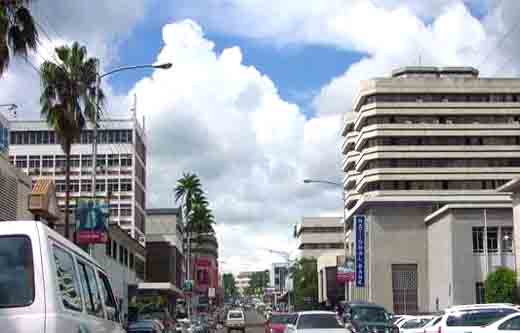Malawi’s gross domestic product (GDP) has been slashed to 4.4 percent down from the January 5.4 percent projection, indicates the latest World Bank report.
The June 2013 World Bank Economic Global Prospects Report titled, ‘Less volatile, but slower growth,’ further projects that Malawi’s economy will rebound to 4.8 percent in 2014 before accelerating to 5.5 percent in 2015.
However, Malawi as indicated in the budget statement, projects the economy to grow by five percent this year from 1.8 percent growth realised last year.
Commenting on the growth projections, Economics Association of Malawi (Ecama) executive director Nelson Mkandawire, in a telephone interview on Friday, cast doubt on the projections.
“Last year, was a difficult year, but to more than double our growth rate from 1.8 percent to 4.4 percent this year is hard to achieve. We are aware that we had good rains this year and the tobacco marketing season is going on well but to double growth rate means doubling our productivity. To achieve the targets the civil service must also work hard because they are also involved in economic growth.
“Of course, in terms of policy government has worked hard to ensure growth but care must be taken not to derail from fiscal policy bearing in mind that we are heading into an elections year. How sure are we that inflation will slow down to 14 percent by December this year?” wondered Mkandawire.
The bank notes that Malawi is one of the seven developing economies that experienced an inflation rate of more than 15 percent in the first quarter of 2013. Other economies include Belarus which experienced a more than 20 percent inflation, Iran 40, South Sudan 24, Sudan 40, Syria 49 and Venezuela more than 35 percent.
Malawi’s April inflation eased to 35.8 percent from 36.4 percent in March. Authorities however, expect it to slow down to 14.2 percent by December 2013 and to further fall to seven percent by December 2014.
Presenting the 2013/14 budget, Minister of Finance Ken Lipenga said the domestic economy would rebound to five percent on account of growth driven by improvements in agriculture, forestry and fishing
“The rebound in agriculture is partly propelled by increases in tobacco production from 79 million kg in 2012 to 156 million kg in 2013. In addition, manufacturing is also expected to increase on account of higher tobacco processing and fewer production bottlenecks related to fuel and foreign exchange problems,” said Lipenga.
The, World Bank, in the report notes that generally the sub-Sahara GDP growth prospects remain strong, with robust investment, resilient consumer demand, public investment in infrastructure and increased exports are expected to continue to underpin growth performance, albeit with variations across countries.
The report notes that regional GDP is projected to expand by 5.2 percent per year on average during 2013 through 2015, 4.9, 5.2, and 5.4 percent for 2013, 2014 and 2015 respectively.




